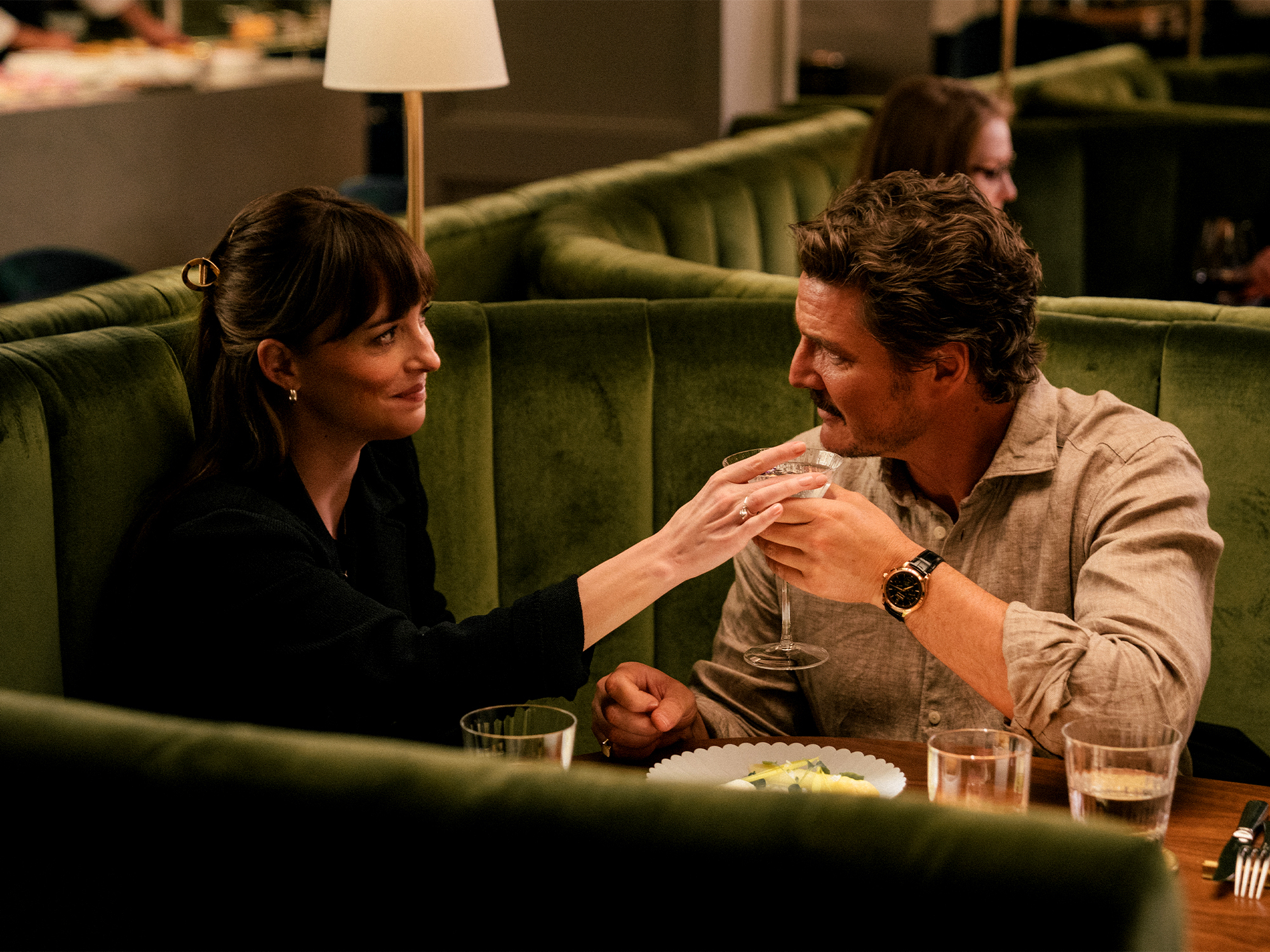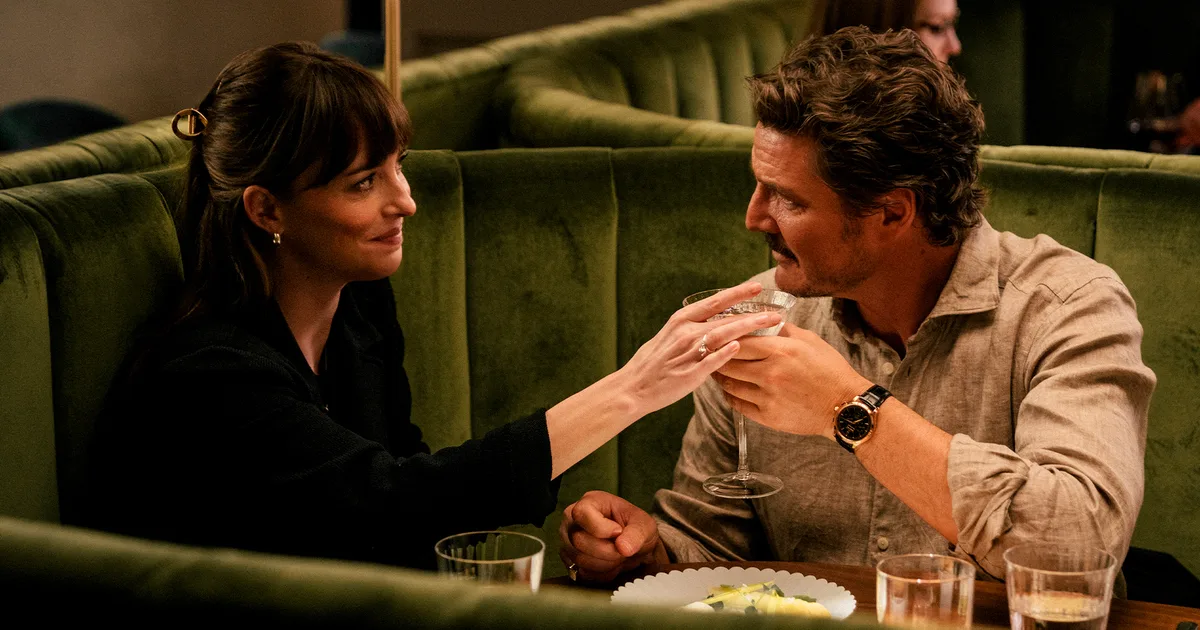
When Elizabeth Bennet first gets a glimpse of Pemberley, Mr Darcy’s enormous estate, she experiences a fleeting pang of “something like regret” over the marriage proposal she rejected and the loss of the home that would have been hers. In her follow up to Past Lives. Celine Song doesn’t update Jane Austen à la Clueless, but she is concerned with the age-old tussle between marriage and money, the commodification of romantic relationships, and what we think we want versus what we really need.
After a rather sweet, knowingly silly prologue of a cave man proposing to his cave girlfriend, we meet Lucy (Dakota Johnson), the star employee of an elite New York matchmaking service who’s grown accustomed to the finer things. She sees marriage purely as a business proposition – a mathematical formula to be followed. At the lavish wedding of two of her clients she encounters rich, eminently eligible bachelor Harry (Pedro Pascal), a “unicorn” candidate for matchmaking who’s only interested in pursuing her. Meanwhile, she’s unexpectedly drawn towards her broke ex-boyfriend John (Chris Evans), a struggling actor picking up catering shifts and still living with his gross flatmates in his late thirties.
Get more Little White Lies
But what’s been sold by A24 and Sony as a sparkling who-will-she-choose love triangle (complete with Team Pedro and Team Chris t‑shirts) is initially more cynical than its marketing would have you believe. Inspired by her own time as a New York City matchmaker, Song is more concerned with capitalism’s encroachment on love than indulging romcom conventions. We see montages of Lucy’s clients listing their non-negotiables: a certain height, weight, salary, age or even race. They feel entitled to carve up their prospective life partners into dehumanised assets, and as amusing as these sequences are, in a tonal lurch we also see the very real danger of flattening people into products.
Dakota Johnson, with her unbelievably glossy hair and affectless performance style, is convincing as an emotionally repressed Cool Girl on the hunt for a rich husband, but has a harder time selling Lucy’s vulnerability. Evans and Pascal are charming enough but neither has much to do – not one member of this painfully attractive trio is especially well drawn, each feeling more like an idea than an individual.
And yet despite these not insignificant flaws, Materialists, shot on gorgeous 35mm, does manage to capture something of the sheer inexplicable miracle of romance in a world that wants us to view each other as disposable. Its core message of love over luxury might sound trite, but the proliferation on social media of regressive ideas about men providing for women financially (see Song’s astute response to a Letterboxd review describing the film as “broke man propaganda”) indicates this is a notion sadly worth repeating.
Song’s vision of New York mirrors her vision of romantic love: it’s all struggle and hope, with dreams dashed repeatedly but not abandoned. It’s sometimes clumsily communicated but there’s something affecting about the reminder that it’s all worth the risk, or maybe it’s just that this writer has attended four weddings this summer.

دیدگاهتان را بنویسید